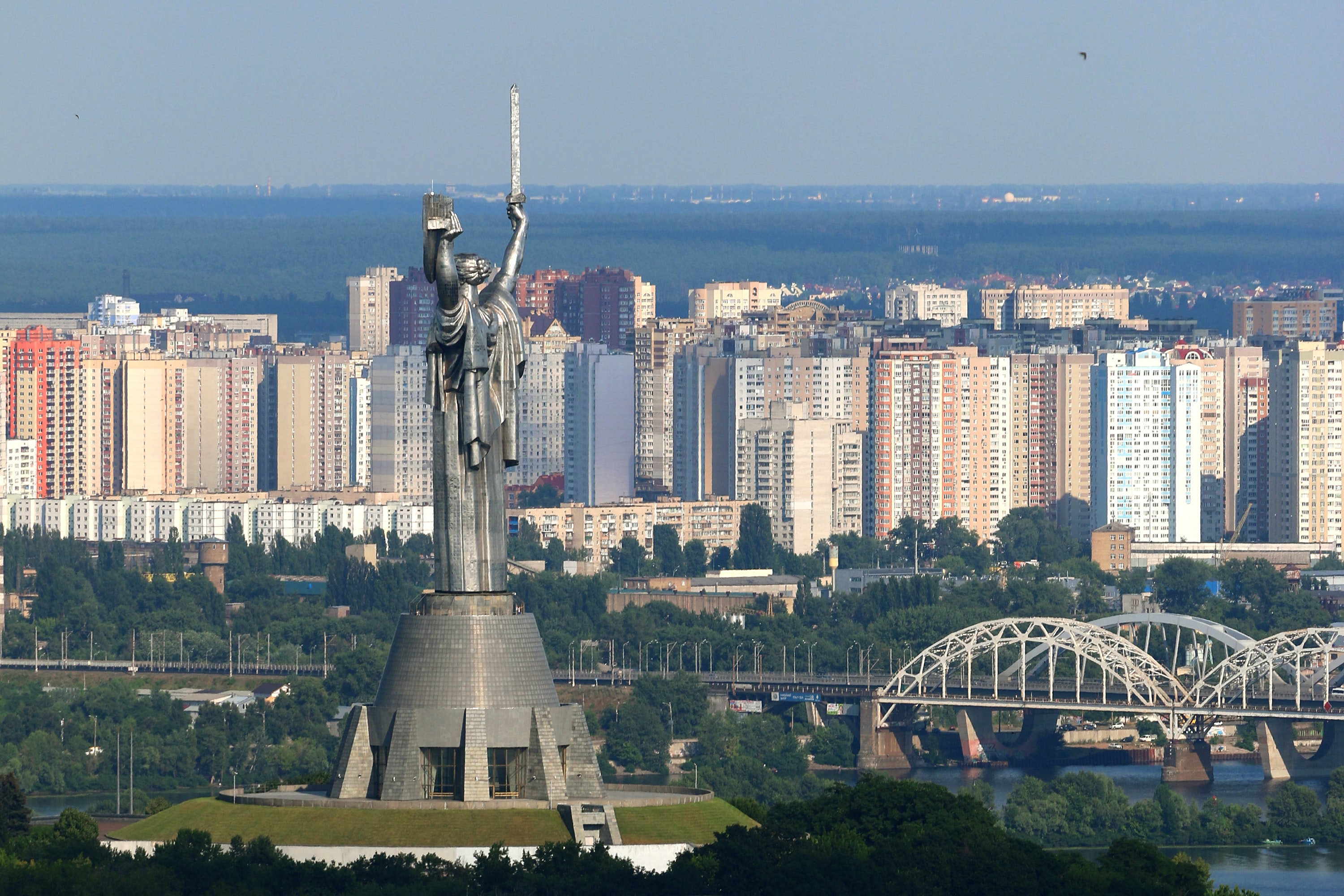Yale professors weigh in on Russian invasion of Ukraine
As Russia’s invasion of Ukraine unfolds, four Yale professors detail the causes of the conflict and its potential outcomes.

As Russia’s invasion of Ukraine unfolds, Yale’s faculty experts weighed in on factors that led to the conflict and the potential humanitarian repercussions of the aggression.
In the early hours of Feb. 24, Russian President Vladimir Putin launched a “special military operation” into Ukraine with the intention of “demilitarizing and denazifying” the country. The escalation came in the wake of Putin’s Feb. 21 recognition of the independence of the Donetsk and Lugansk regions from Ukraine and subsequent stationing of reinforcements in the region — an act that has been condemned by the Biden administration and international leaders. These Moscow-backed separatist republics, which are not recognized by any other European Union member states besides Russia, have made territorial claims that extend beyond their area of control and into territory controlled by the Ukrainian army.
Yale professor of political science David Cameron attributed Putin’s recognition of the Donetsk and Lugansk People’s Republics to his frustration with the failure of the U.S. and NATO to provide security guarantees to Russia — most notably the prohibition of eastward NATO expansion, including the accession of Ukraine. Also playing a role in the invasion, Cameron said, was Ukraine’s failure to implement certain provisions of the Minsk II Agreement, including constitutional reforms which would give special status and autonomy to predominantly Russian-speaking regions in Eastern Ukraine.
The effects of Russia’s Thursday invasion are still undetermined. News reports on Thursday evening indicated that Russia launched numerous air and missile strikes on military facilities as well as ground invasions from the north, east and south that appear to be targeting the Ukranian capital of Kyiv, as well as the major cities of Kharkiv and Kherson.
“Russia’s actions are nothing less than a declaration of war against Ukraine,” Cameron wrote in a commentary for the Yale MacMillan Center.
Associate professor of political science Alex Debs, whose research concentrates on global conflict and nuclear policy, noted that the consequences of nuclear proliferation likely also play a significant role in this escalation. There is little evidence that Ukraine is on the path to acquiring nuclear weapons, Debs said, but nevertheless Putin has used the potential of Ukraine joining NATO and thereby entering into an alliance with countries that do have nuclear weapons, as a pretext for invading.
“The general consensus is that nuclear weapons deter, they convince other states not to attack,” Debs told the News. “If Ukraine were part of NATO, then it could more effectively deter Russian aggression. … And, Putin would say, Ukraine could pose a threat to Russia if it is part of NATO.”
Ukraine, notably, has been in possession of nuclear weaponry in the past. When the Soviet Union collapsed, Ukraine inherited a nuclear arsenal, but willingly denuclearized in exchange for security guarantees from Russia, the United States and the United Kingdom in an agreement known as the Budapest Memorandum. Russia first violated this guarantee when it invaded and annexed the Crimean Peninsula in 2014.
The Russian offensive in Ukraine has been met broadly with sanctions and condemnation from the European Union and the United States. As a result of these sanctions, the value of the ruble has sunk to a record low and Russian stocks have seen one of the worst crashes in history.
Yale University World Fellow Rayhan Asat said that she supported the EU’s and U.S.’ sanction measures, and noted a need for punitive measures against “Russian institutions, oligarchs, and holding companies.”
Asat, who is a human rights lawyer, also pointed specifically to the humanitarian effects of the conflict. She noted that the invasion could lead to a mass displacement of Ukranians, and she hopes European countries would prepare to help take in and resettle refugees.
“The neighboring countries must prepare to set up reception centers like Poland and Romania as an immediate response,” Asat told the News. “In the long term, EU member states must be committed to sharing responsibility for asylum seekers and providing sustainable support.”
Asat added that governments could follow the lead of the United Kingdom and allow the Ukrainians who are legal residents or workers in their countries to remain under the same visa.
History professor Marci Shore, who specializes in European intellectual history, told the News that within this conflict, it is important to separate the ideals of Putin and his party from the ideals of the Russian people at large.
Shore noted that within the intellectual community in Russia there is significant opposition to the war, pointing specifically to an open letter by the Russian Congress of Intellectuals — a group of Russian academics, politicians and human rights advocates. The Feb. 4 letter, which Shore said posed a great personal risk to the signatories, called a potential war against Ukraine “irresponsible and immoral” and “devoid of legitimacy.”
“The Russian writer Viktor Shenderovich was just giving an interview to the Russian station Echo Moskvy in which he said ‘This is a war by one person’ — and then the phone/internet line was cut,” Shore said. “This is Putin’s war, and it’s grotesque.”
The Budapest Memorandum was signed on Dec. 5, 1994 by the United States, Russia and Ukraine.







